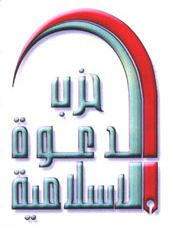Erin Chapman
 Results from the recent provincial elections in Iraq saw Prime Minister Nouri al-Maliki’s Dawa Party gain power in many of the country’s provinces. According to preliminary returns, Dawa is now the most powerful Shiite party in Iraq. No small potatoes.
Results from the recent provincial elections in Iraq saw Prime Minister Nouri al-Maliki’s Dawa Party gain power in many of the country’s provinces. According to preliminary returns, Dawa is now the most powerful Shiite party in Iraq. No small potatoes.
The word dawa means “a call to Islam.” If one of your infidel-types converts to Islam, he is said to have answered the Dawa. I.e., Cat Stevens + Dawa = Yusuf Islam. The party was established in the late ‘50s as a Shiite political movement opposed to secular governments and spent quite a few years underground, relentlessly persecuted by Saddam Hussein’s Baathist government.
A young scholar named Muhammad Baqr al-Sadr played a leading role in forming the movement. (If his name sounds familiar, yes indeed, he was the father-in-law of the U.S.’s favorite black-turbaned, thick-bearded radical cleric, Muqtada al-Sadr.) Muhammad Baqr and his supporters gained the enmity of the secular Baath Regime soon after its military coup. Surprise, surprise, the Baath party goal of “complete elimination of Islamic movements” did not bode well for Dawa. In 1971, Iraqi Security agents arrested one of the party’s founders and when he refused to disclose any information; his interrogators – who apparently were actually pretty serious about this whole hating-Islamic-movements-thing — slowly immersed him in a vat of sulfuric acid.
Not to be outdone by his interrogation personnel, Saddam Hussein declared in 1980 that Muhammad Baqr al-Sadr and his sister Amina were a significant threat to his regime and ordered their arrest. According to the Dawa party, Amina was quite a firebrand in her own right. She led the women’s branch of the party, wrote for its publications and when her brother was captured, gave a rabble-rousing speech on the steps of a holy shrine that incited the populace to riot. He was freed the next day. The freedom was short-lived, however. Learning the lesson that they probably shouldn’t have left an eloquent orator behind to rile up the masses, the Baath party arrested both Muhammad and Amina at the same time and they were killed shortly thereafter.
Although the party went further underground during this period, it occasionally emerged in the early ‘80s to launch violent attacks against the Iraqi regime and its allies – including the U.S. A Dawa splinter group was blamed for the ’83 U.S. embassy bombings in Kuwait. The party also made an attempt against U.S.-Best-Buddy Saddam Hussein. It was July, 1982 and Saddam was visiting a small provincial town during the holiday of Eid al-Adha. As he drove by, a woman with hands covered in blood ran up to the car and planted her palms on the door. Fair enough, that’s pretty creepy, you might say to yourself, but probably not a great assassination attempt. Turns out, though, in parts of the Middle East, bloody handprints are a good luck charm! She had just sacrificed a sheep and wanted to keep bad things away from the beloved leader! Or not… This particular lady was no well-wisher and the handprints marked the car so that a Dawa sniper would know which one to open fire on. Oh PSYCH, Saddam! Or not….The fearless leader survived and then had the village pretty much destroyed. Party members were executed or forced into exile in Iran and Syria, returning only after 2003.
Today, in a change of allies, the party has found prominence backing U.S-led offensives against sectarian violence. Although they are traditionally a Shiite party, supporters have lately stressed rule of law and supply of basic services over religious ideology. Dawa’s own website says that “Since its foundation, the party has never seen itself to be a Shi’a party, nor defined itself as such whether in public or private.” Perhaps the most promising sign for this up and coming movement? The number one principle listed on their “Our Beliefs ” web page is “1. Party for all Iraqis.” Sounds like something Rodney Dangerfield would want them to do. I think they could use some fun times.
(Dawa Party; Richard Engel – War Journal; Inter Press Service; Washington Post)
